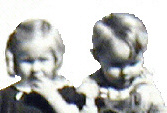![]()
Fast forward to 1986 after my retirement to the private, self-employed sector:
That year, to my surprise, the National Journalism Center, a conservative journalism "finishing school" in Washington, D.C., awarded me a paid, full-time, 3-month fellowship for the winter session. Their selection decision was based on an unclassified summary of a thesis ("The Future of Ostpolitik") I wrote in 1974 to graduate from an advanced national intelligence university run by the Defense Intelligence Agency.
Despite the fact that by 1986 the thesis was completely outdated and had lost any relevancy to the political situation in Europe, the NJC selection committee apparently liked it for its very unorthodox presentation usually forbidden in an academic environment. It was essentially a 150-page chronology of fictional world-wide newspaper reporting on how the USSR diplomatically neutralized and then militarily occupied West Germany. Although the prediction I posited in those pages made a big "hit" inside the intelligence community in 1974--I was notified months later at my post in Southeast Asia, that it had been named the "most significant" thesis among my class of 200 officers-- by 1986 it must have read like a cheap, thoroughly ridiculous, failed attempt to emulate Nostradamus.
Thank God the NJC selection committee wasn't evaluating my candidacy on the basis of the essay's relevancy! So I took a "sabbatical" from my business in Central America and threw my suitcase onto an unmade bunk in the Center's downtown "hostel" occupied by three guys who had just completed their stints and were clearing out in advance of the fast approaching Christmas holidays. From the first day of classes it was clear that I was senior (by about 20 years) among the six fellows (two of whom were recent coed grads). However, the resident faculty, Chris and Mal, the director (a nationally syndicated journalist), M. Stanton Evans, as well as my classmates made it clear that my age seniority bore no privileges; I ran just as many "gofer" errands, made just as many pots of coffee, and withstood just as many critiques--some scathing--of my writing exercises.
To complete the terms of my fellowship, the NJC set me up during the last month of my term to do some "real" journalism with the Times of the Americas (defunct sometime in the mid-1990s), a distinguished weekly journal-in-exile in D.C. after Castro threw it and its CIA-connected editors, Carl and Clarence Moore, out of Havana in 1961. Jon Utley, the associate editor, made a game effort to put up with my linguistic observations that insisted his use of certain words, like "triumphant," in connection with communist-backed guerrilla gains in Central America, amounted to a subtle acquiescence to Marxist terminology. Nevertheless, Jon was patient, while managing to convince me I was not the fount of journalistic wisdom I thought the NJC had recently empowered me with. This brief month-long stint did have an interesting conclusion. It served, by means I can only attribute to Clarence's still active Company networking, as the basis for a "quiet, off-site, spontaneous" interview by a Company agent, conducted on a cold March evening over a bottle of wine in a small Georgetown bistro specializing in pasta.
The Company's interest in me evidently centered on the fact I lived and worked in Central America, a region that was suffering from the considerable turmoil caused by Daniel Ortega's Sandinistas and their alliance with the USSR and Cuba. Fortunately or not, I must not have impressed my interviewer, for I was not put on the payroll. However, I must have been considered a "source," because a few months after returning home, I received an urgent phone request to facilitate a "fellow journalist" in connecting with John Hall, a rancher in northern Costa Rica and a well-known collaborator with the anti-communist contras in Nicaragua.
Although I was courteous to my "fellow journalist" who arrived a couple days later, I distressed him considerably when I confessed that I had absolutely no more palanca with Mr. Hall than he did--on top of that, I was unable to even be a reliable guide to Mr. Hall's ranch, since I had never been there myself! (To tell the truth, the evening I met my "fellow journalist" in a cheap Costa Rican hotel room, I had a foreboding about him and was only too glad to be able to beg off this "mission.") The disappointment I caused surely must have clinched my unsuitability as a Company asset.
In sum, the NJC fellowship experience exposed me, however briefly, to the unique Washington political and journalistic environment, which continues to exert a strange allure that I somehow feel must be realized. Any comment?
REMINDER: If some posts seem to leave you "hanging," they often depend on a foregoing entry or more, so try scrolling toward the bottom and working your way up--it's the way blogs work.

No comments:
Post a Comment